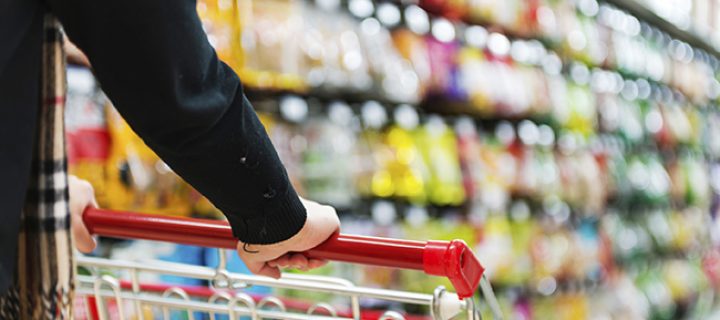Skip the bleach solutions and go for disinfecting wipes and warm water.
Can you get the coronavirus from your groceries? Experts say that it actually is not likely that you will contract COVID-19 from touching your groceries. The more imminent threat in connection with your food is encountering someone at the grocery store who has the coronavirus and is contagious.
This is why social distancing and staying at home if you are sick-even if you are not sure what you have- is so important.
It is possible, however, to get the coronavirus from touching your newly purchased packages.
Dr. Tamika Sims, the Director of Food Technology Communications at the International Food Information Council, a non-profit organization supported by the food, beverage and agricultural industries, holds a doctorate in virology and immunology. Sims wrote this to Insider.com:
“Yes, there can be a virus transfer risk if someone carrying the virus sneezes onto your produce and within hours you touch it and then immediately eat it.”
Related: 10 Things to Know About a COVID-19 Vaccine
So, the risk is slim, it is there. If you are hoping to take all the chances you can to protect your household against contracting COVID-19, you should know how to disinfect your food.
Experts have this advice. Sims advises that you avoid using a diluted bleach solution to spray on your packaged food once you get it in the house. This may disinfect the containers but if it seeps into your food, it can make you sick.
In connection with this, any type of fumes that may escape into the air when making your bleach solution can be hard on your lungs. You definitely want to keep your lungs working as well as possible, when facing the coronavirus, so it is best to not go this route.
If you can get your hands on some disinfecting wipes, use these to clean the outside of your packages. Wipe down everything from cereal boxes to pop bottles, milk containers, and anything else produced in packaging.
As for your fresh fruits and vegetables, go for a vegetable wash if you have it, or simply run them under warm water. Neither of these methods have been proven to kill the coronavirus, but they cannot hurt.
According to the FDA, the novel coronavirus is not spread through food
Related: 5 Best Practices for Effective Social Distancing
Health Canada advises washing your fruits and vegetables in the same manner as you always would. The regulations for washing produce have not changed in Canada with the advent of the coronavirus. Thus, continue to clean your fruits and veggies using warm or cold water to rinse them free of dirt and pesticides.
And then there is the issue of bags. It can also be a good idea to consider how you transport your groceries from your local store. Reusable grocery bags are a wonderful invention, but it could be that now is not the time to use them. Grocers can not guarantee that all shoppers are washing their reusable bags adequately between uses, and not carrying the virus on them.
In some US states, the use of reusable grocery bags has already been banned during the COVID-19 pandemic. There is no need to aggravate the situation by using reusable bags, and so for the time being,
it could be wise to use the plastic bags on offer at your grocery store in order to reduce workers’ and fellow customers’ exposure to the virus.
Stay healthy and shop right. For further tips on maintaining a solid immune system during the crisis, click here.












